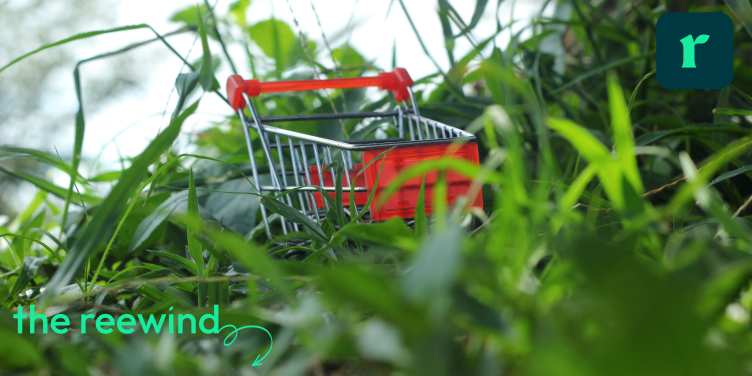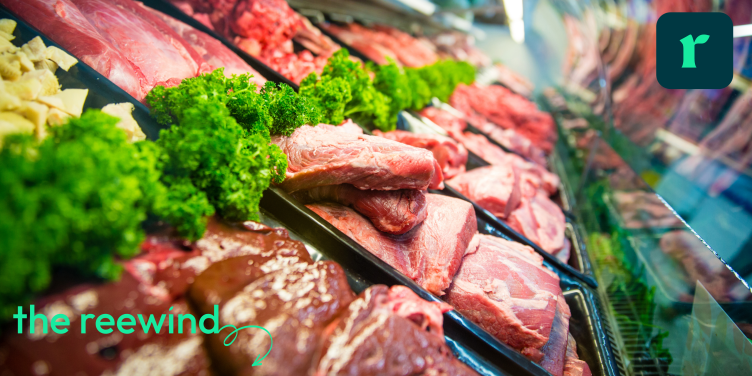
Our Top Stories
The call for radical climate transparency: Our very own Co-Founder Kit Nicholl explains why “radical climate transparency” is the way forward when it comes to generating consumer trust around sustainable food claims. The rise of greenwashing has meant that brands are simply avoiding communicating their company’s impact - known as ‘greenhushing’. However, this inertia does not help provide the information that consumers desperately need for them to make sustainable choices. But times are changing. With Reewild’s new app, the carbon information of products can now be provided to all shoppers, to ensure eco-conscious decisions are rooted in data, not catchy slogans. [New Food]

How Sunak’s weakened climate policy affects the FMCG sector: The Grocer has analysed the UK Prime Minister’s announcement from earlier this week, and highlighted the top 3 takeaways for food and drink businesses. The main learning is that the government still seems to be pushing ahead with plans for mandatory Scope 3 emissions reporting to try to accelerate the race to net zero. However, the speech has made the UK’s food waste strategy even more ambiguous, with warning signs that many new regulations may be at risk of collapse. And when it comes to the meat tax, the PM’s banning of what was a non-existent government policy changes nothing - the strategy outlined by the Climate Change Committee still calls for an accelerated transition to reduced-meat diets, but has never argued for a state-wide tax on meat consumption. [The Grocer]
Banning climate-neutral claims: Companies will now be banned from claiming that their products are climate-neutral from 2026. The changes will mean that companies are effectively prohibited from greenwashing, which is a huge win for both consumers and brands. As consumers, our trust is the currency we trade with brands when choosing more sustainable options, and brands will become much easier to trust when they can no longer promote misleading environmental claims. [Edie]
Business Spotlight - Carrefour, Unilever, Danone
French retailer Carrefour has teamed up with Unilever and Danone to launch a plant-based coalition to develop vegan food in France in the wake of a proposed ban of meat-related terms like ‘steak’, ‘ham’ and ‘beef’ on plant-based alternatives. In a ProVeg survey, over 80% of consumers said it is obvious that products labelled 'vegan', 'vegetarian', and 'plant-based' do not contain meat, which has been used as evidence against the need for this new proposed law. In response to the French government, Carrefour CEO Alexandre Bompard has stated that “plant-based alternatives are an answer for our customers: they are both good for health, good for the planet and good for their budget”. [Green Queen]

Research Corner
Floating sea farms: In what is believed to be a world first, Pan Wu and his team at the University of South Australia have designed a self-sustaining solar-driven system that evaporates seawater and recycles it into freshwater, using it to grow crops without any human involvement. By 2050, approximately 2.4 billion people are likely to experience water shortages, and the global supply of water for agricultural irrigation is expected to decline by around 19%. With 97.5% of the world's water in our oceans, the new system is seen as an obvious solution to harness the sea and sun to address growing concerns around the world’s broken food and freshwater supply. [ScienceDirect]
Stat Attack
“Global decarbonisation efforts need to grow seven times greater than what was recorded last year, and 12 times greater than the average decarbonisation level of 1.4% over the past two decades.”
Source: PwC Net Zero Economy Index
The Big Picture

About Reewild
The food and agriculture industry is at the heart of the climate crisis, generating around a third of man-made greenhouse emissions. And while the challenge of reducing its impact may seem beyond our grasp, it is one that we all have the power to tackle.
We believe that the solution lies in climate transparency. That’s why we’re equipping businesses with the means to evaluate and communicate the emissions of their products. This, in turn, means consumers are armed with credible, independent information, which can be used to make more sustainable choices.
We know that many people want to take climate action but lack the necessary tools and information to do so. We're confident that, armed with the right knowledge, everyone can and will do their bit to build a greener, more sustainable food system.
Download the Reewild app
Follow us on social media
https://www.instagram.com/reewild.earth/
https://www.linkedin.com/company/reewild/



.png)


